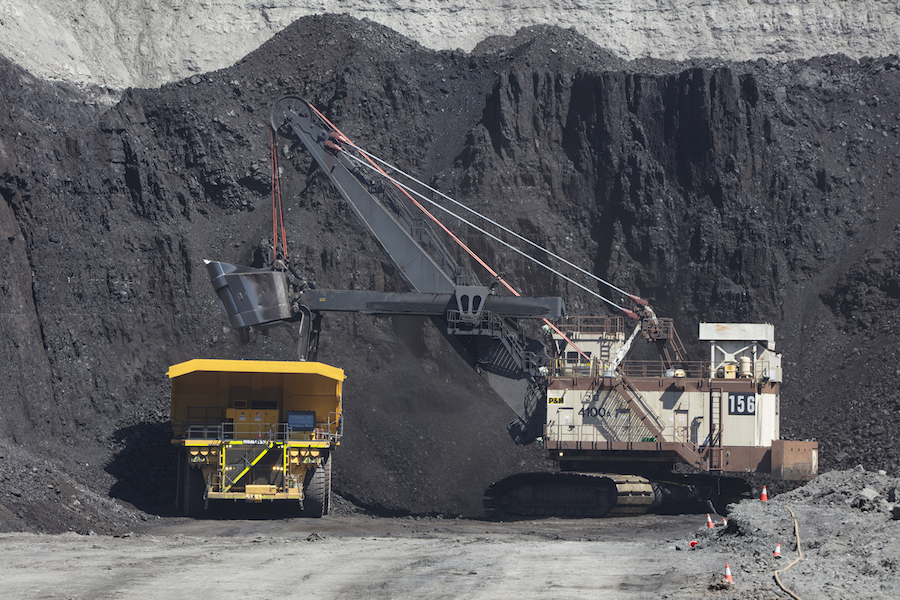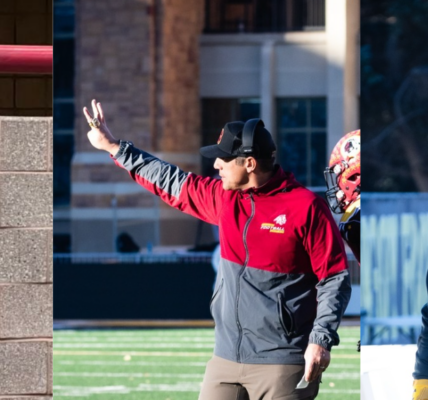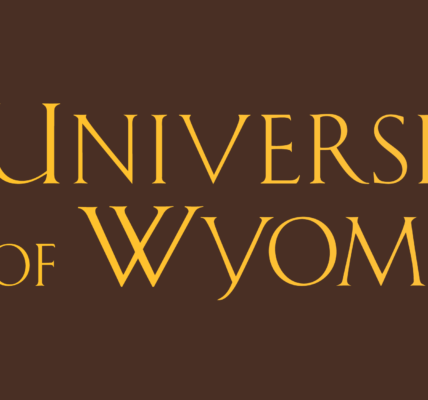By Dustin Bleizeffer, WyoFile.com
A federal judge in Montana issued two separate decisions this month that threaten the future of federal coal leasing in the Powder River Basin — where mining was already expected to continue a precipitous decline.
U.S. District Judge Brian Morris ordered the Bureau of Land Management to revise two resource management plans to more fully analyze the climate and human health implications of leasing federal coal, oil and natural gas in the Powder River Basin in Wyoming and Montana.
The RMP revisions, administered by BLM field offices in Buffalo and in Miles City, Montana, are due by Aug. 3, 2023, according to the order.
The same federal judge, a President Barack Obama appointee, also issued a summary judgment this month to reinstate an Obama-era leasing moratorium for all federal coal reserves in the U.S. until the BLM revamps the program to make climate and public health among priority considerations in leasing decisions.
Taking into account coal’s contribution to planet-warming CO2 emissions, as well as its toll on public health, the decisions could curtail new coal leases or significantly cut back on the volume of coal offered for development in the Powder River Basin, according to a coalition of conservation groups.
“This is a significant victory for our climate and the communities across the country who are impacted by our continued reliance on this dirty and dangerous fuel [coal],” Earthjustice attorney Jenny Harbine said via a press release.
Wyoming intervened on behalf of the BLM in both cases. Gov. Mark Gordon criticized the moratorium ruling as “wrong-headed” and a “step backwards that doesn’t protect the environment and ensures consumers will pay more for energy.
“This decision is bad for Wyoming,” Gordon continued in a press statement. “It hurts our country’s ability to provide reliable, low-cost energy to Americans and hinders the abilities of companies to plan and invest in new technologies like carbon capture and utilization.”
The National Mining Association and other coal backers have promised to challenge the rulings.
A federal court ruling in 2018 instructed the BLM to include an analysis of climate implications when considering whether to lease more coal in the PRB. Judge Morris agreed the agency’s revision in response to the 2018 ruling gave only a cursory look and didn’t consider climate impacts as a reason to not lease. This month, Morris more explicitly ordered the BLM to consider a “no leasing” alternative.
The BLM must “consider no coal leasing and limited coal leasing alternatives and […] disclose the public health impacts, both climate and non-climate, of burning fossil fuels from the planning areas,” Morris wrote. “Coal mining represents a potentially allowable use of public lands, but BLM is not required to lease public lands.”
“That a federal judge ordered the [BLM] to consider a no-leasing alternative and disclose to the public how many people will be sickened and die as a result of the combustion of federal coal is groundbreaking,” Western Environmental Law Center Senior Attorney Melissa Hornbein said in a press release. “The courts recognize the seriousness of the climate crisis and the impacts of fossil-fuel pollution. The BLM must now do likewise.”
The separate ruling that reinstates the coal-leasing moratorium adds another layer of assurance for a full analysis of climate and human health implications, according to Western Organization of Resource Councils and other groups, as well as an opportunity to update federal royalty rates and reclamation requirements.
Now, conservation groups want to press the federal government even further. Some want the Biden administration to “phase out” or buy back existing coal leases. “There is no room to continue producing coal in a climate emergency,” Earthjustice’s Harbine said.
“That’s troubling right there,” Wyoming Mining Association Executive Director Travis Deti said. “Every little effort to try to inhibit and stop [coal production], that’s tough and that’s troubling.”
Continued coal production and slowing the retirement of coal-fueled power plants are key to launching carbon capture and sequestration technologies, Deti said. Goals such as electrifying vehicles can’t happen without coal-based power and the opportunity to cut greenhouse gas emissions from those facilities, Deti said.
Regardless of whether the PRB coal industry continues to shrink due to the retirement of coal-burning power plants or if federal policies hasten the decline, Wyoming and its coal-reliant communities are in for an economic shock, according to some industry watchers. That’s not lost among conservationists who celebrate the potential demise of Wyoming coal.
“There isn’t a good answer or a ready replacement for Wyoming,” Sierra Club Wyoming Chapter Director Connie Wilbert told WyoFile. But, she added, “if we don’t stop emitting carbon and methane pollution nothing else is going to matter. This is way bigger than the immediate hardship that we face here in Wyoming.”
Coal production in the Powder River Basin — the nation’s largest coal-supplying region — has declined 49% from 2008 to 2021, according to WyoFile’s analysis of U.S. Mine Safety and Health Administration data. Even before Judge Morris’ rulings this month, the PRB mining industry may have already seen its last round of large federal coal leasing.
The most recent large federal coal leases sold in the basin went to Peabody Energy and Arch Coal (now Arch Resources) in 2012. Peabody paid $1.24 billion for the rights to mine 1.12 billion tons of coal to extend operations at its North Antelope Rochelle mine, according to the BLM. Arch paid more than $300 million for 222.67 million tons of federal coal for its flagship Black Thunder mine.
All told, some 2.5 billion tons of federal coal reserves were leased in the Powder River Basin under Obama prior to his administration issuing a coal leasing moratorium in 2016 to revamp the leasing program. But bad investments and shifting markets had already sent coal company finances into a nosedive, kicking off a series of coal company bankruptcies and mine layoffs in Wyoming.
Since 2016, PRB coal producers have withdrawn several federal lease applications, and some have even relinquished tracts of coal.
The basin’s second largest producer, Arch, for example, told investors last month it’s using its current cash windfall from PRB coal to close its operations in the state. The company, which has shifted its focus to mining coal in the eastern U.S. for steelmaking clients, intends to relinquish millions of tons of Powder River Basin coal already under federal lease.
Deti with the Mining Association pointed out that PRB coal producers are enjoying a surge in demand and pricing, and mine operators are in a good position — for “the short term.”
“We’ve got enough [PRB coal] leased for the next decade,” Deti said.
But that doesn’t mean the court rulings and more stringent leasing rules are inconsequential. “The issue is, when these [court rulings] come out, our utility customers see that and they’re looking down the line and saying, ‘Well, is this even going to be an option in the future?’” Deti said. “So that’s what’s really concerning about it.”





